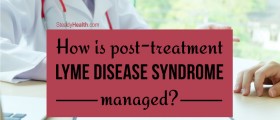
Chronic vomiting syndrome is an alternative name for a disorder commonly known as cyclic vomiting syndrome. Just as the name suggests, this disorder is characterized by recurrent bouts of severe nausea and vomiting that can last for several days. The cause of this disorder is still unknown.
This disorder usually starts at young age, between ages three and seven, although it can start at any age. Episodes of vomiting last longer in adults than in children, but in children they are more frequent.
Children with cyclic vomiting syndrome are believed to be prone to migraines. Fortunately, many children outgrow this problem with time and vomiting episodes stop recurring as they grow up.
Symptoms
The basic symptoms of chronic or cyclic vomiting syndrome include nausea, vomiting, gagging, loss of appetite, pale complexion, weakness and fatigue. The symptoms may appear up to six times an hour. In children, episodes or bouts of nausea may only last a few days but in adults they can last up to a week or even more.
Other, less common symptoms of cyclic vomiting syndrome include insomnia, photosensitivity, headache, fever, diarrhea, dizziness and abdominal pain.
Treatment
There is no treatment for chronic vomiting syndrome, mostly because it is not known what exactly causes it. However, a person suffering from chronic or cyclic vomiting syndrome should use antiemetics and anti-nausea medication, sedatives and antacids. In cases of severe vomiting the patient may have to be admitted to a hospital, where he or she will receive intravenous fluids and nutrition in order to prevent dehydration, malnutrition and deficiencies.
There are medications normally used for migraines that can alleviate, prevent or even cure vomiting bouts. Those medications include tricyclic antidepressants, triptans and analgesics, such as Advil or Motrin.
When a vomiting bout starts, it is recommended to stay in dark, well-ventilated and quiet room and to try to get as much sleep as possible. After the vomiting bout stops, it is essential to drink plenty of water, fruit juices and sport drinks to replace the electrolytes caused due to vomiting. Some need to stay on a liquid diet for a while before starting with solid foods, while others can go back to their normal diet as soon as the vomiting stops.
As for the alternative medicine, several treatment options have been considered but not yet confirmed through clinical studies. Some examples of those treatments include L-Carnitine and Coenzyme Q10.
As for the prevention, it can help to get enough sleep, avoid stressful situations and foods that trigger the nausea, to exercise moderately, to avoid overeating and to eat at regular times.

















Your thoughts on this
Loading...